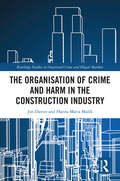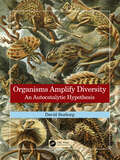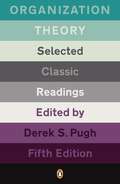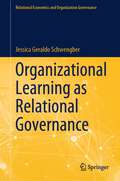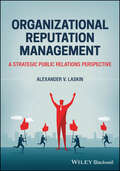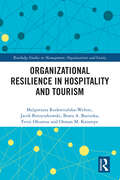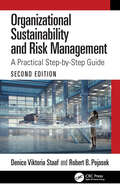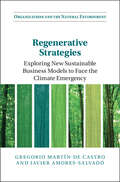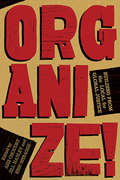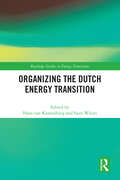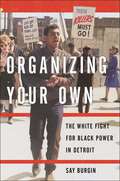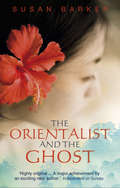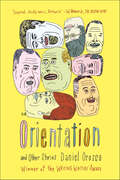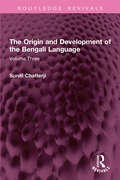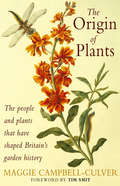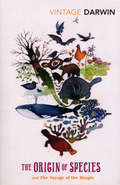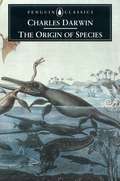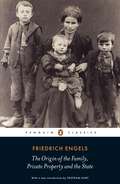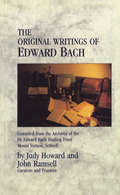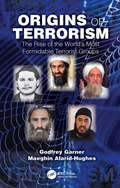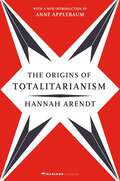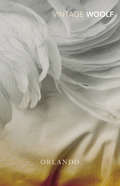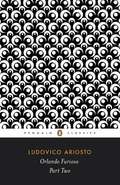- Table View
- List View
The Organisation of Crime and Harm in the Construction Industry (Routledge Studies in Organised Crime)
by Jon Davies Hanna MalikDrawing on empirical work and secondary analysis from the UK and Finnish construction industries, this book contributes a deep-rooted analysis of construction industry harms that originate from corporate-industrialstate processes.The UK context arguably represents a classic ‘neoliberal’ system categorised by privatisation of services and minimal regulation, whereas Finland broadly provides a ‘social democratic’ alternative with its relatively strong national regulation and public sector oversight of industry. These concepts interlink strongly with the notion of state-corporate crime, since this perspective shifts attention away from individualistic explanations for crime and harm towards symbiosis between states and corporations. This book argues that existing explanations based on organised crime and individual ‘rogues’ are insufficient to account for the wider range and subtlety of harms that occur in construction, and therefore offers a unique perspective into organisational, industry, and state dynamics in this sector.An accessible and compelling read, this book will appeal to students and scholars of criminology, sociology, organized crime, and those interested in harms in the construction industry.
Organisms Amplify Diversity: An Autocatalytic Hypothesis
by David SeaborgThis book presents a hypothesis and evidence that organisms promote and ecosystems maximize biodiversity. All species have a net positive effect on their environment, other species, and diversity. The sun is 30% hotter than when life began, but the temperature has been kept moderate by life. Life created high oxygen, the ozone layer, and fertile soil, a diverse, living system. No species evolves in isolation, and most evolution is coevolution. The nature and number of links between species are as important as species number. Eukaryotes coevolve with complex ecosystems of microbes with which they exchange genes. Genomes and intraspecific interactions both act to promote evolution and diversification. Viruses increase diversity of their hosts and cause macroevolutionary transitions. Key Features Life alters the Earth in ways that increase biodiversity All species make their environment better for other species and promote diversity Life created the life-friendly atmosphere, temperature, and soil of today
The Organix Baby and Toddler Cookbook: 80 Tasty Recipes For Your Little Ones' First Food Adventures
by OrganixOrganization Theory: Selected Classic Readings
by Derek S. PughThis book spans seventy years of theory from Max Weber's seminal writings on bureaucratic organization to the latest management thinking represented by Handy, Peters and Waterman. Covering three main areas of interest, those of the structure of organizations, management and decision making, as well as that of organizational behaviour, this thoroughly revised and updated edition contains a vast amount of new contributions. It is a widely acknowledged text in its field, and an essential handbook for all those it concerns. It has also been announced as a core text for Open University courses from January 2008.
Organizational Learning as Relational Governance (Relational Economics and Organization Governance)
by Jessica Geraldo SchwengberThis book critically examines existing organizational learning theories that often center on employees and adopt a neo-classical organizational view. In this book, organizational learning (OL) is conceptualized from a relational governance perspective. Departing from the relational economics approach, it describes organizations as dynamic nexuses of stakeholders' resources and interests, extending beyond conventional intra-organizational contexts to encompass an open systems view. By viewing organizations as independent entities, distinct from individual stakeholders, the author introduces the concept of transactions as the fundamental unit of analysis in organization theory. Stakeholders contribute diverse rationalities, and OL emerges as the process of relationalizing these rationalities, enabling multi-contextual transactions within organizations. This book sheds light on epistemological and ontological challenges in OL literature, such as the OL paradox and anthropomorphism. To address these issues, the author advocates a shift from methodological individualism to methodological relationism, wherein OL becomes a micro-meso-relational process involving both stakeholders and the organization as an entity. Combining conceptual insights with empirical evidence from a multinational company's case study, the book showcases how relational learning can be practically applied in organizations. The findings corroborate the conceptual framework, supporting the notion of organizations as resource-rich nexuses and learning as a comprehensive relational process involving both entities and stakeholders. This book offers an essential contribution to the field. It appeals to scholars and practitioners interested in organizational studies, corporate governance, and relational economics.
Organizational Reputation Management: A Strategic Public Relations Perspective
by Alexander V. LaskinORGANIZATIONAL REPUTATION MANAGEMENT Teaches public relations through the management of relationships with key organizational publics, perfect for business and management students Organizational Reputation Management: A Strategic Public Relations Perspective presents comprehensive coverage of how corporations, governments, and non profit organizations build and maintain their reputation. This unique textbook provides students with a solid understanding of the function of public relations as a strategic activity, as author Alexander V. Laskin offers a real-world relationship management perspective while employing an innovative approach to defining and analyzing reputation. Student-friendly chapters introduce all essential concepts of reputation management, describe the entire process of reputation management, help future organizational leaders appreciate the importance of reputation, explain measurement and evaluation methods, and define organizational reputation through relationships with key stakeholders such as investors, employees, and customers. Designed to be used with the PRSA MBA/Business School Initiative curriculum, Organizational Reputation Management demonstrates how to apply the Research, Planning, Implementation, and Evaluation (RPIE) process, the Paid, Earned, Shared, and Owned (PESO) communications model, the Barcelona Principles, and other key public relations concepts in the context of organizational reputation. Organizational Reputation Management: A Strategic Public Relations Perspective is the ideal textbook for undergraduate and graduate courses in reputation management, public relations management, and strategic communication.
Organizational Resilience in Hospitality and Tourism (Routledge Studies in Management, Organizations and Society)
by Malgorzata Rozkwitalska-Welenc Jacek Borzyszkowski Beata A. Basinska Fevzi Okumus Osman M. KaratepeAlthough ‘VUCA’ is not a new term, the features of the world it describes, a volatile, uncertain, complex and ambiguous environment, have never been more valid. The VUCA world has become the new reality for business, specifically for hospitality and tourism organizations that are more vulnerable than any other sector due to the historically-recognized turbulent environment in which they operate. In this book, the authors present unique factors that make hospitality and tourism organizations resilient in the VUCA world. With contacts at the center of their hospitality and tourism organizational resilience model, the organizational and psychological perspectives are also incorporated. This innovative volume tests the model of organizational resilience in hospitality and tourism organizations. The study identifies and validates organizational and individual factors that create a resilient organization in the hospitality and tourism sector. It will be of interest to researchers, academics, practitioners, and advanced students in the fields of organizational studies, strategic management, hospitality, and tourism management.
Organizational Sustainability and Risk Management: A Practical Step-by-Step Guide
by Denice Viktoria Staaf Robert B. PojasekThis new edition is completely revamped and reorganized to reflect the change in standards and regulations and to include all new topics related to organizational sustainability and risk management. The role that the Sustainable Development Goals (SDGs) play within the realm of organizational sustainability is one of many new topics. Organizational Sustainability and Risk Management: A Practical Step-by-Step Guide, Second Edition will continue to remind all stakeholders how organizations work through a measurement transformation that affects everything they do including following the International Organization for Standardization’s (ISO) Guide for Sustainability and climate change. The book is enriched with a discussion on life cycle thinking that has been introduced in the ISO high-level structure. Discussions on a fundamental change in how organizations approach sustainability and how we view organizational sustainability are covered. This book offers a platform for managing all activities, products, and services tailored to the needs of the organization and presents how important environmental, social, and governance (ESG) standards are to determine the potential for increased financial growth of organizations that have implemented organizational sustainability. The book is for professionals and can be used in continuing education sustainability courses as well as company-provided short courses where the new regulations for sustainability and ESG reporting are addressed.
Organizations and the Natural Environment: Regenerative Strategies
by Castro, Gregorio Martín-de Javier Amores-SalvadóOrganize!: Building from the Local for Global Justice
by Aziz Choudry Jill HanleyHow do we organize for progressive social change in an era of unprecedented economic, social, and ecological crises? How do political activists build power and critical analysis into their daily work for change? Grounded in struggles in Canada, the USA, and Aotearoa/New Zealand, as well as transnational activist networks, Organize! links local organizing with global struggles for social justice. From organizing immigrant workers to mobilizing psychiatric survivors, from arts and activism for Palestine to support for Indigenous Peoples, activists, academics, and artists reflect on the tensions and gains inherent in a diverse range of organizing contexts and practices. Organize! encourages us to use history to shed light on contemporary injustices and how they can be overcome.
Organizing the Dutch Energy Transition (Routledge Studies in Energy Transitions)
by Hans Van Kranenburg Sjors WitjesThis book addresses learnings from the energy transition in the Netherlands.This book brings together contributions from experts in academia and practice to the Dutch energy transition by sharing their knowledge and experience gained over many years and from different roles and responsibilities. The chapters are clustered around four key perspectives – Policy, Sector, Organization, and Future – and explore the impact of policy decisions of governments and strategic decisions of firms operating in the energy sector on the energy transition process. The different perspectives present many promising strategies, policies, and innovations on each aspect, resulting in a deeper understanding of how each of these strategies, policies, and innovations may hinder or contribute to foster the energy transition. It concludes with a reflection on lessons learned and specific managerial and policy recommendations.This volume will be of great interest to students, scholars, and industry professionals researching and working in the areas of energy transitions, sustainable business, energy technology, and energy policy.
Organizing Your Own: The White Fight for Black Power in Detroit (Black Power)
by Say BurginThe fascinating history of white solidarity with the Black Power movementIn the mid-1960s, as the politics of Black self-determination gained steam, Black activists had a new message for white activists: Go into your own communities and organize white people against racism. While much of the media at the time and many historians since have regarded this directive as a “white purge” from the Black freedom movement, Say Burgin argues that it heralded a new strategy, racially parallel organizing, which people experimented with all over the country. Organizing Your Own shows that the Black freedom movement never experienced a “white purge,” and it offers a new way of understanding Black Power’s relationship to white America.By focusing on Detroit from the mid-1960s through the mid-1970s, this volume illuminates a wide cross-section of white activists who took direction from Black-led groups like the Northern Student Movement, the City-Wide Citizens Action Committee, and the League of Revolutionary Black Workers. Organizing Your Own draws on numerous oral histories and heretofore unseen archives to show that these white activists mobilized support for Black self-determination in education, policing, employment, and labor unions. It was a trial-and-error effort that pushed white activists to grapple with tough questions – which white people should they organize and how, which Black-led groups should they take direction from, and when did taking Black direction become mere sycophancy. The story of Detroit’s white fight for Black Power thus not only reveals a broader, richer movement, but it carries great insight into questions that remain relevant.
The Orientalist And The Ghost
by Susan BarkerMalaya 1951, a jungle resettlement camp: young colonial adventurer Christopher Milnar falls passionately in love with a Chinese nurse Evangeline - a fierce flame that ends in tragedy when their camp is attacked by Communist guerrillas and Christopher is violently beaten up.London: half a century later the ghosts of that time return to haunt Christopher, triggering vivid memories of colonial misconduct and lost love. Forced to confront his past, Christopher agonises over the fate of his beloved Evangeline and the disappearance of their daughter, Frances.Moving from present day London to the heart of the Malayan jungle in colonial times, THE ORIENTALIST AND THE GHOST is a stunning portrayal of human frailty and lost love.
Orientation and Other Stories: And Other Stories
by Daniel OrozcoBreakfast's boiled egg, the overhead hum of fluorescent lights, the midmorning coffee break—daily routines keep the world running. But when people are pushed—by a coworker's taunt, a face-to-face encounter with a woman in free fall from a bridge—cracks appear, revealing alienation, casual cruelty, madness, and above all a simultaneous hunger for and fear of the unknown. Daniel Orozco leads the reader through the hidden lives and moral philosophies of bridge painters, men housebound by obesity, office temps, and warehouse workers. He reveals the secret pleasures of late-night supermarket trips for cookie binges, exceptional data entry, and an exiled dictator's occasional piss on the U.S. embassy. A love affair blooms between two officers in the impartially worded pages of a police blotter; a new employee's first-day office tour includes descriptions of other workers' most private thoughts and actions; during an earthquake, the consciousness of the entire state of California shakes free for examination. Orientation introduces a writer at the height of his powers, whose work surely invites us to reassess the landscape of American fiction.Orientation is a Kirkus Reviews Best of 2011 Short Story Collections title.
Origami Antennas for Wireless Communication Systems
by Syed Imran Shah Shahid Bashir Slawomir KozielThis book discusses the lightweight, reconfigurable, and deployable origami antennas for adaptive communication systems. Traditional antennas, with their fixed characteristics, struggle to meet the evolving needs of modern communication systems. Reconfigurable antennas, on the other hand, can dynamically adjust their operating parameters, offering significant advantages in terms of performance, size, and cost. Origami technology has emerged as a disruptive force in antenna design, enabling the development of lightweight, reconfigurable antennas with tailored radiation characteristics. Deployable origami antennas offer a transformative solution for applications demanding mobility and rapid deployment in challenging environments. These innovative antennas hold immense promise to revolutionize communication systems, paving the way for a future where adaptability and versatility are paramount. This book offers a comprehensive guide to origami antenna technology, encompassing both fundamentals and practical applications. It might be a valuable resource for researchers and engineers working in the field of antenna development, particularly those focused on wireless communication systems with reconfigurability and deployability are essential design prerequisites.
The Origin and Development of the Bengali Language: Volume Three (Routledge Revivals)
by Suniti Kumar ChatterjiFirst published in 1972, The Origin and Development of the Bengali Language (Vol. 3) is the updated supplement to the two-volume The Origin and Development of the Bengali Language. It contains certain additions and corrections to the first systematic and detailed history of a Modern Indo-Aryan Language written by an Indian, and incidentally, as it is comparative in its treatment, taking into consideration facts in other Indo-Aryan speeches, it is an invaluable contribution to the scientific study of the Modern Indo-Aryan languages as a whole. This book will be of interest to students of language, linguistics and South Asian studies.
The Origin Of Plants: The People And Plants That Have Shaped Britain's Garden History
by Maggie Campbell-CulverA fascinating history of Britain's plant biodiversity and a unique account of how our garden landscape has been transformed over 1000 years, from 200 species of plant in the year 1000 to the astonishing variety of plants we can all see today. Thousands of plants have been introduced into Britain since 1066 by travellers, warriors, explorers and plant hunters - plants that we now take for granted such as rhododendron from the Far East, gladiolus from Africa and exotic plants like the monkey puzzle tree from Chile.Both a plant history and a useful reference book, Maggie Campbell-Culver has researched the provenance and often strange histories of many of the thousands of plants, exploring the quirky and sometimes rude nature of the plants, giving them a personality all of their own and setting them in their social context. The text is supported by beautiful contemporary paintings and modern photographs in 2 x 8 pp colour sections.
The Origin of Species and the Voyage of the Beagle: On The Origin Of Species, The Autobiography Of Charles Darwin, And The Voyage Of The Beagle
by Charles DarwinDiscover Charles Darwin's most important ideas... When the eminent naturalist Charles Darwin returned from South America on board the H.M.S Beagle in 1836, he brought notes and evidence that would form the basis of his landmark theory: that species evolve by a process of natural selection. This theory, published as The Origin of Species in 1859, is the basis of modern biology and the concept of biodiversity. It also sparked a fierce scientific, religious and philosophical debate that still rages today. WITH AN INTRODUCTION BY DARWIN'S GREAT-GREAT-GRANDDAUGHTER, RUTH PADEL
The Origin of Species by Means of Natural Selection: Or the Preservation of Favoured Races in the Struggle for Life
by Charles DarwinWith his revolutionary work The Origin of Species Charles Darwin overthrew contemporary beliefs about Divine Providence and the beginnings of life on earth. Written for the general public of the 1850s, it is a rigorously documented but highly readable account of the scientific theory that now lies at the root of our present attitude to the universe. Challenging notions such as the fixity of species with the idea of natural selection, and setting forth the results of pioneering work on the ecology of animals and plants, it made a lasting contribution to philosophical and scientific thought.
The Origin of the Family, Private Property and the State
by Friedrich EngelsThe Origin of the Family, Private Property and the State (1884), was a provocative and profoundly influential critique of the Victorian nuclear family. Engels argued that the traditional monogamous household was in fact a recent construct, closely bound up with capitalist societies. Under this patriarchal system, women were servants and, effectively, prostitutes. Only Communism would herald the dawn of communal living and a new sexual freedom and, in turn, the role of the state would become superfluous.
The Original Writings Of Edward Bach: Compiled from the Archives of the Edward Bach Healing Trust
by John Ramsell Judy HowardThe Flower Remedies discovered by Dr Edward Bach, MB, BS, MRCS, LRCP, DPH, are now used extensively throughout the world. They have earned themselves a highly respected reputation and many books have, over the years, been written on the subject to compliment Dr Bach’s own Heal Thyself Healers & Other Remedies which represent the culmination and final record of his life’s work.Throughout his career, Dr Bach wrote many papers and literary compositions and this book provides a collection of his most inspirational work. It has been compiled with a great deal of thought and careful respect for his wishes. This book gives readers an opportunity to share his most uplifting and inspirational writings and stories, many of which have been reproduced in their original long-hand. Also included are character portraits by his friends and colleagues, some early photographs, letters and his own recorded case histories. Collectively they provide a wonderful insight into Dr Bach’s thoughts and precise intentions for the future of his work.This book, compiled by the curators and trustees of the Dr Edward Bach Healing Trust, offers a most enlightening and intimate appreciation of this great physician.
Origins of Terrorism: The Rise of the World’s Most Formidable Terrorist Groups
by Godfrey Garner Maeghin Alarid-HughesOrigins of Terrorism: The Rise of the World’s Most Formidable Terrorist Groups examines the roots of Islamic terrorism, it’s history, and some of the foundational figures in prominent terrorist organizations. Throughout, the book also addresses the use of terrorism, the "hows" and "whys" of terrorists’ goals, and their modus operandi.Historically, insurgency operations have formed the basis of a number of terrorist groups—resistance to western powers, particularly the United States, and what is viewed as their unwanted interference in regional affairs. Sections are devoted to individual terror organizations, including some of the most well-known and resilient global movements—Al Qaeda, ISIS, the Taliban, and Boko Haram, among others. Coverage details where and how they originated, who the principal organizers were, how these individuals worked—or didn’t work—together. In this, the authors look at the circumstances that allowed for these leaders, and their groups’, development and success. In this, the authors expose interesting, little-known stories and facts about the specific upbringing, family life, and personal narrative around these organizations’ founders, as well as ties to other terrorist founders and organizations. For example, the relationship between individuals such as Osama bin Laden and Musab al Zarkawi (aka Ahmad al-Khalayleh)—the founder of ‘Al Qaeda in Iraq’ (AQI), which became ISIS—is examined in detail, providing readers with some of the "stories behind the stories" to understand the prominent figures and underpinnings of major terrorist organizations’ philosophies, formation, and elements that have led to their staying power.Origins of Terrorism will be a valuable resource for security and intelligence professionals, terrorism researchers, and students, providing a unique perspective to understand terrorism and terror movements in considering counterterror efforts.
The Origins of Totalitarianism: with a new introduction by Anne Applebaum
by Hannah ArendtHannah Arendt’s definitive work on totalitarianism—an essential component of any study of twentieth-century political history—now with a new introduction by Anne Applebaum.In recent years, The Origins of Totalitarianism has become essential reading as we grapple with the rise of autocrats and tyrannical thought across the globe.The book begins with the rise of anti-Semitism in central and western Europe in the 1800s and continues with an examination of European colonial imperialism from 1884 to the outbreak of World War I.Hannah Arendt then explores the institutions and operations of totalitarian movements, focusing on the two genuine forms of totalitarian government in our time, Nazi Germany and Stalinist Russia, which she adroitly recognizes were two sides of the same coin, rather than opposing philosophies of Right and Left. From this vantage point, she discusses the evolution of classes into masses, the role of propaganda in dealing with the nontotalitarian world, the use of terror, and the nature of isolation and loneliness as preconditions for total domination.This edition includes an introduction by Anne Applebaum—a leading voice on authoritarianism and Russian history—who fears that “once again, we are living in a world that Arendt would recognize.”
Orlando
by Virginia WoolfVirginia Woolf's most unusual and fantastic creation, a funny, exuberant tale that examines the very nature of sexuality. WITH INTRODUCTIONS BY PETER ACKROYD AND MARGARET REYNOLDS As his tale begins, Orlando is a passionate young nobleman whose days are spent in rowdy revelry, filled with the colourful delights of Queen Elizabeth's court. By the close, he will have transformed into a modern, thirty-six-year-old woman and three centuries will have passed. Orlando will not only witness the making of history from its edge, but will find that his unique position as a woman who knows what it is to be a man will give him insight into matters of the heart. The Vintage Classics Virginia Woolf series has been curated by Jeanette Winterson and Margaret Reynolds, and the texts used are based on the original Hogarth Press editions published by Leonard and Virginia Woolf. **One of the BBC’s 100 Novels That Shaped Our World**
Orlando Furioso: Part Two (Orlando Furioso #2)
by Ludovico AriostoA dazzling kaleidoscope of adventures, ogres, monsters, barbaric splendor, and romance, this epic poem stands as one of the greatest works of the Italian Renaissance.
